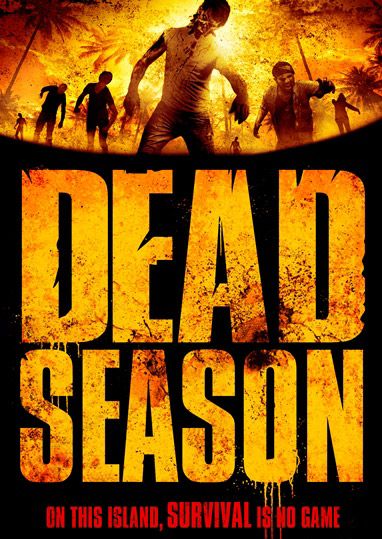Forums
Horror Movie Talk
Loren Semmens Talks DEAD SEASON, Getting Into Film & More!

The Skeleton Crew's Michael J here. DEAD SEASON is not your typical zombie flick. This one has bite!When a worldwide viral outbreak leads to a plague of zombies, two survivors flee the chaos of America to a remote island, hoping for a chance to start a new life. What they find is unrelenting horror. Beyond the hordes of the flesh-hungry undead, the other people already on the island force the pair into a fight-or-die battle amongst themselves. Armed only with crude weapons, they must descend into savagery and cutthroat tactics just to make it through each day. Packed with cutting-edge action and insane gore, Dead Season is a riveting new spin on the zombie genre
Recently I had the opportunity to have an interview via email with Producer, Writer, & Editor Loren Semmens to discuss how the movie came to be, getting into film, and more! Read on for the interview....
MJ: How did you become interested in film?
LS: My mother went into labor while watching Last Tango In Paris.
Upon hearing Marlon Brando's voice, I needed to get out into the world.
I grew up in Rochester New York which is the home of Kodak, and my father was a documentary filmmaker.
Film has always been a part of my life, so I'm a direct result of my environment.
MJ: What are some of your favorite movies? Did they influence DEAD SEASON in any way?
LS: Blue Velvet, 8 1/2, Pee-Wee's Big Adventure, Three Amigos.
I like fish out of water movies, which is a theme in Dead Season.
When Elvis and Tweeter are forced to integrate into a new community, it touches on that clasc story.
MJ: You played the role of writer/producer/editor for DEAD SEASON. Which was the most challenging and why?
LS: On this particular project, producing was the most difficult.
We had a very limited budget when making Dead Season.
As a result, producing called for a lot more creative decions than normal.
We couldn't just throw money at problems to fix them.
Instead, we needed to really work with our resources and what was available.
For example, the entire first 10 minutes of the film were completely redone.
This took many meetings on how to best utilize the footage we already shot to save money, but at the same time do a solid job of introducing our characters.
MJ: Did you run into problems during production?
LS: Shooting on Vieques, the remote military island off the coast of Puerto Rico was a blesng and a curse.
The locations were stunning, but it was an extremely hostile shooting environment; heat, humidity, sand, water, insects, wild horses, rain...
We were separated from any type of camera and equipment support so whenever something broke, we would have to send a crew member on a ferry ride to the main island and wait for their return the next morning.
Additionally, we shot during hurricane season, which led to many a torrential downpour.
We had entire shooting days cancelled due to weather.
MJ: What advice do you have for someone who wants to get into the industry?
LS: Start shooting now.
So many people wait until they have their opus project, or mply write scripts that t on their shelf.
Just go shoot.
This day and age, it's practically free with all the advancements in technology.
Additionally, utilize and build a fan base now.
There's no need to be located in Los Angeles anymore condering so much entertainment is independently produced and winds up online.
MJ: What's next for you?
LS: We have a handful of projects for different venues.
Some are larger that we are pitching to networks and studios.
Others are features that we plan on producing on our own through independent financing.
MJ: Would you like to expand to other genres ade from horror?
LS: Absolutely.
The horror genre is a fantastic stepping stone into the feature world, as it's posble to complete a film with a reasonably unknown cast and low budget, yet still gain exposure.
I want to thank Loren for taking the time to answer these questions. He's very inghtful and I wish him luck on all of his future endeavors. DEAD SEASON is available on DVD now!
http://youtu.be/d3zClfnTJqE
TheSkeletonCrew
Wednesday 8/01/2012 at 04:40 PM | 95225
